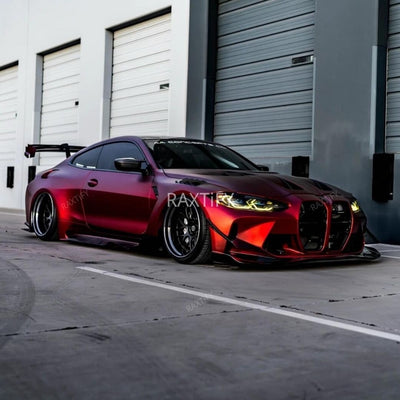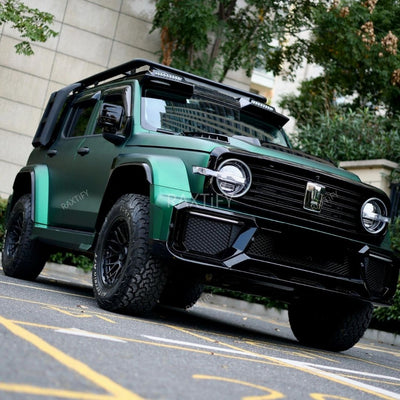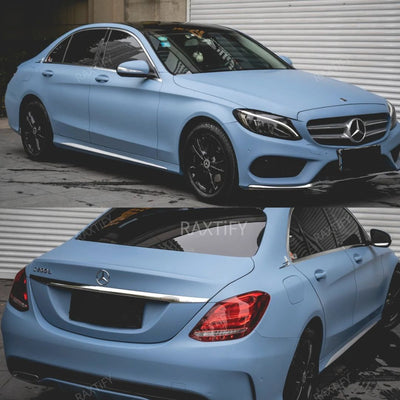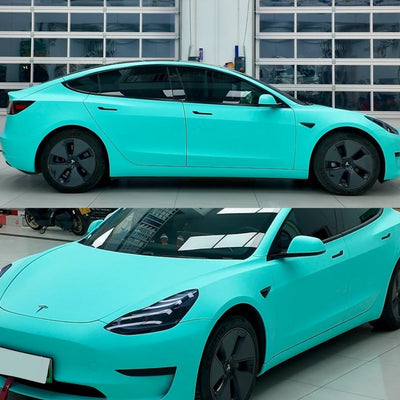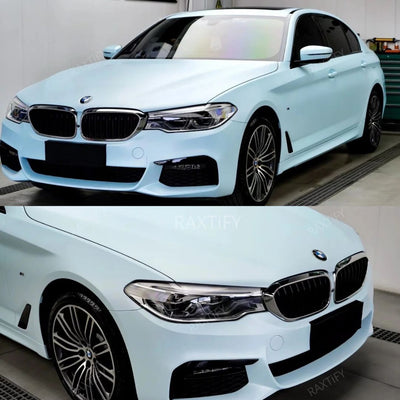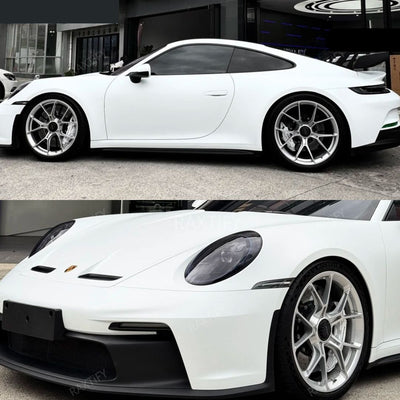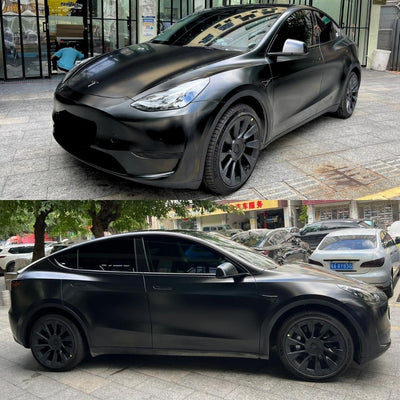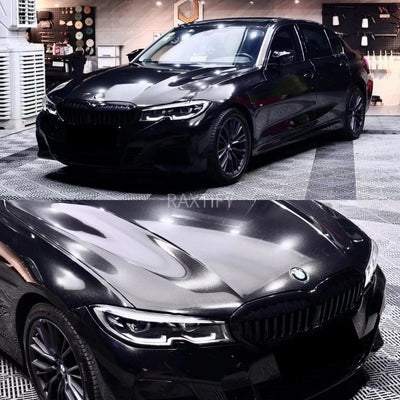Covering your automobile is a growing trend of making your car look new without necessarily having to repaint it. The most prevalent question that most people would ask then is: how much does it really cost to wrap a car?
The cost of a car wrap varies according to various factors- the size of your car, the type of material you want, as well as whether you want to hire a professional to install it or do it yourself. Majority of the wraps are PVC vinyl that is resistant to sun rays, rain, dust, and other adverse elements and can preserve the original paint that is on your car.
When you go with a full professional wrap, you will pay anywhere between 3 thousand and 7 thousand dollars on an average car. In case of luxury/exotic models which demand additional accuracy, the price may increase to $10,000-$18,000 because of complicated surfaces and labor costs.
It should be mentioned that labor is most of the cost and not the vinyl itself. Qualified installers will call on making sure the installations are clean, have smooth edges and a years to last surface.
Vinyl Wrap Cost Chart For Different Types Of Vehicle
When it comes to altering how your car looks or covering its original paint, it is vital to know how much it would cost to invest in a wrap. The prices differ based on the size of the vehicle, the level of surface intricacy and the quality of the vinyl. This is a rough approximation of what you should expect to pay on a RAXTiFY vinyl wrap.

Family Sedan
Average cost of a complete wrap of an average family sedan is about 3000 dollars. This cost will cover good material and expert installation that will provide a smooth cover and high durability.
Compact Car
A smaller vehicle may only need a smaller amount of vinyl and hence the price may begin at $2000. When you are driving a small car such as a Honda Fit or a Mini Cooper, a wrap is a cheap means to renew the appearance of your car without having to spend much money on buying a paint cylinder.
Coupe
In the case of couples, the wrap charges usually vary between $ 2,000 and $ 3,000, depending on the size and complexity of the design of the car. A two-door vehicle may require greater accuracy on curves and edges, which has a little impact on the labor price.
Compact Crossover
Wrapping a compact crossover will cost an average of $3000. These cars are larger in size compared to sedans and wraps will increase their appearance as well as protection particularly those that are used in family outings or even in commuting.
SUV
Prices of wrapping a full-size SUV begin at $4,000. SUVs take more time to vinyl and installation because of their bigger body panels and more detailed appearance. Nevertheless, the outcome is an aggressive and defensive final that is well worth the cost.
Jeep
Jeeps, on the other hand, will cost between $3,000 and $4,500 to have an average wrapping depending on whether it is a two-door or four-door jeep. A lot of Jeep owners decide to use wraps to personalize it either in a rough matte appeal or in a shiny adventure outfit.
Truck
The price of wrapping a truck ranges between $1000 and $5000. Smaller models can be as low as $2,000, but larger models can be as high as the end of the range. Trucks are used on a wide area and this means that the wraps do not only alter the style of the truck but also provide protection to the paint during worksite or even weather.
Commercial Vehicles
In the case of vans and other commercials, the average price is between $3,000 and $5000. The wraps are also commonly used as mobile adverts and can thus serve as a very affordable marketing device too as well as an element of protection.
Luxury Cars
Some of the most expensive and exotics cars including Ferraris, Lamborghinis and Rolls-Royces have a price tag ranging between 5-10000 dollars to be wrapped. The increased cost implies the expertise and accuracy of working with unusual lines and costly finishes. As an example wrapping an Audi will cost approximately $ 6,500, Lamborghini will cost $4,000 to $5,000, a Ferrari will cost approximately $7,000 and a Rolls-Royce up to $10,000 since it is a complex car to wrap.
How Much Does It Cost To Wrap A Car In Different Regions?
A car wrap can be very expensive and this is because of a couple of factors that include; the place where the wrapping is done, the wrap type, the complexity of the design, the size of your car, and the experience of the person who does the wrapping. In order to get a better idea about what you need to expect, here is the approximate prices of car wraps in various parts of the world.
Region
Key Factors
Estimated Cost
| Asia | Lower labor costs make wrapping more affordable, though material prices vary by country. | $1,500 – $3,500 |
| Europe | Higher labor and material expenses usually lead to steeper prices. | €1,500 – €5,500 |
| Middle East | Prices fluctuate based on the local economy and availability of skilled installers. | $2,000 – $4,000 |
| North America | Professional labor and premium wrap materials generally cost more in this region. | $2,500 – $5,500 |
| Latin America | Similar to Asia, labor is less expensive, but imported material prices can affect total costs. | $1,500 – $3,500 |
How Much Does It Cost To Wrap Your Vehicle?
Vinyl wraps have become extremely popular among both motorsport and ordinary drivers within the last years. They not only help change the look of your car to a smooth, luxurious look, but they also serve as an interference, as they shield the original paint, preventing it to be damaged by the sun and scratches, as well as, the rough weather. Vinyl wraps come in various quality, and thus investing in a quality wrap that is of known brand such as RAXTiFY is a sure way of ensuring that your car keeps its beautiful appearance as well as it retains its value.

There is a great variety of wrap materials, finishes and the ways of the installation, so it may seem overwhelming to choose the correct one. In addition to style and color, the cost to wrap a car is also an essential aspect of the process of making decisions. Then, what do you think you will spend on wrapping your car? We will divide the specifications and the most influential variables that influence the overall price- vehicle size and wrap type, labor and finish choices.
Breakdown Of The Cost Of Wrapping A Vehicle
Car wrapping is a great method of improving the appearance of your car and also offers an extended cover on the paint. Nevertheless, it is best to know the overall cost upfront so as to make a better and more informed decision.
Premium Quality Vinyl
The largest expense of a car wrap is the vinyl itself. You must select the high quality of vinyl in case you want high quality finish that will not fade, crack, and peel off. Premium wraps also have a smoother touch and color depth that is more vivid and this can revolutionize the look of your vehicle.
The material cost can be very high depending on the type and material as well as finishing. You will spend about $500 to $5000 or more on vinyl alone depending on the size of your car and the complexity of car lines and details.
In case you are not interested in a complete wrap, like a wrap on the hood, roof or mirrors then the price is much less than that of a full wrap. At RAXTiFY, a 5ft x 10ft vinyl roll in different finishes costs between $189 and $199 whereas a unique design such as carbon fiber patterns can cost up to $199.
The Cost Of Labor For Vinyl Installation
A big percentage of the overall wrapping cost comprises labor costs. The actual cost may differ with the complexity of designing, skills level of the installer and the time needed to complete the work. Location is also an important factor- installers who are in high end or urban locations tend to be charged more because the cost of business is high and demand of professional services is high.
Besides, the nature and dimension of the car also influence the labor rate. Bigger cars such as SUVs, vans or commercial trucks are usually expensive to wrap compared to compact cars. Cars that are curvy, those that have body kits or those that have highly shaped panels will take more time and will be more precise and thus more work and more expensive.
The average amount of money that professional installers can charge their clients is between 1,000 and 3500 dollars or more. This might appear to be expensive but it will come with a smooth finish that is bubble free and is expected to last many years thus saving you the expenses you could have incurred in repairing or re-installing it in future.
Custom Vinyl Designs On Vehicles
In case you will choose to have a custom wrap, you should be ready to spend a little more. These are based on a number of things such as the complexity of your design, the number of colors you employ and the competence of the designer. Printable vinyl wrap is also more expensive than regular vinyl since it needs an extra set of materials and special printing.
An example of a basic custom design can be as little as 500 dollars and a more complex or multi-layered graphics could be as much as 2,000 dollars or more. The money may be justified, though not a bad idea at all, a properly-designed wrap will make your car look like a moving billboard, representing your personality and brand. Selecting a cybertruck Vinyl Wrap with RAXTiFY will have you quality, durable, and have a finish that is no less than dazzling on the road.
The Color And Finish Of The Vinyl Wrap
Depending on the design, finish and the type of vehicle to be covered, the overall price of the vinyl wrap will vary. A plain wrap in monotone will tend to be cheaper than a multi-colored or a custom wrap. The wraps also have other finishes like glossy, matte, satin, metallic, chrome and glitter which have a different look and feel.

A plain matte wrap of a standard car can be priced between 2,500-3,500 dollars generally, and a larger car such as a truck or SUV will cost between 3,500-5,000 dollars. High cost specialty items such as chrome wraps are costly because they are complicated and difficult to install. The cost of a chrome finish will usually begin at approximately 6,000, and it will go up depending on the size and shape of the vehicle.
Vinyl Treatments - To Make Your Wrap Long-Lasting
A liquid nano-ceramic coating is one of the best improvements. This protective coating is a transparent cover upon the wrap and it makes the wrap resistant to water spots, UV rays, road dirt and minor scratches. The finish also makes it easy to clean and the wrap colorful over years.
Remember that this extra treatment makes wrapping more expensive. As an illustration, the cost of nano-ceramic coating in a compact car is approximately $1,500, and in an SUV, it is about 1,800. Though it increases the initial cost, it will save a lot of protection and save long term maintenance costs which makes it a convenient investment to car owners who would like their wrap to remain in good condition.
The Quality Of The Vinyl Wrap
Vinyl wraps are of two main types i.e., cast vinyl and calendered vinyl. Cast vinyl is a high-quality material, which is flexible, has a smooth finish, and whose performance is long-lasting. It is capable of easily adapting into the surface that is complex, resistant to fading, and the residue produced when removed is minimal. By comparison, calendered vinyl is cheaper, however, by nearly half to two-thirds, but it is less resilient and and can be more easily lifted and shrunk in the long run.
Most automobile owners are first fooled into buying calendered vinyl because they believe they have gotten a good deal only to pay later in repairs or replacement. Compared to it, cast vinyl wraps such as those of RAXTiFY have a much better payback period due to their much greater stretchability, waterproofness, and UV resistance.
Never rush and buy a wrap without first examining the product specifications and comparing the various brands and materials. The extra money spent on a high quality vinyl wrap now will result in a smoother finish, less maintenance, and lasting gratification. In car wrap days, it is a common trend to cut corners today, and pay twice tomorrow.
Quantity Of Wrap Required According To The Type Of Vehicle
Vinyl wrap quantity needed depends on size of your vehicle, body style and complexity of design. Knowing the amount of material you will require can enable you to plan your project in a better way and prevent unnecessary wastes. Compact cars typically take up 15-17 meters, mid-size cars take up 18-20 meters, and full-size cars, small SUVs, and compact vans normally take 20-23 meters of wrap.

The shape of the body, the number of panels to use, and the presence or absence of door sills wrap or interior trims are things to consider when preparing to install your wrap, be it a Cybertruck Vinyl Wrap or a smaller every-day driver. Such details might add a bit of material required.
Below is a quick reference guide to help you estimate how much vinyl wrap your vehicle may require:
Vehicle Type
Recommended Quantity (Meters)
Icon
| Sedan | 16–18 meters | 🚗 |
| Wagon | 19–22 meters | 🚚 |
| SUV & 4WD | 17–22 meters | 🚙 |
| Micro | 8 meters | 🚘 |
| Mini | 13 meters | 🚗 |
| Van | 23 meters | 🚐 |
| Coupe | 14–15 meters | 🏎️ |
| Pick-up | 21–22 meters | 🚛 |
| Hatchback | 17–19 meters | 🏎️ |
| Sports Car | 17–18 meters | 🏎 |
These measurements are a sure point of beginning when buying your wrap. As a beginner or a DIYer, it is always good to order a little more, which in most cases is an extra meter or two so as to factor in the error or trimming when installing it.
Full Or Partial wrap
Wrapping your car can be done either in a full wrap or a partial wrap, which is depending on your taste and financial capacity.
Your car is covered with a complete wrap that goes round the entire surface of your car, both on the roof and on the bumpers, providing your car with a totally new look. It is perfect when you wish to change the color of your car, give it protection to all parts, or a perfect and paint-like finish to your car. Although the cost depends on the size of the vehicle and the wrap material, a full wrap will cost between 3000 and 6000 dollars on an average car and a truck.
A partial wrap could be the solution in case you would need something cheaper. You have the option of choosing a particular part of the car such as the roof, hood, or trunk which cost approximately $300. Some minor items like door handles are about $60, side mirrors around 100 per couple and spoilers about $300. This will enable you to give your vehicle a new look or introduce some fashionable accessories without having to invest a complete makeover.
Full wraps provide an overall and smooth look, whereas partial ones are ideal when you would want to experiment with colors or to emphasize some parts of your car.
At RAXTiFY, there are many different options of finishes: gloss and matte, metallic and color-shift films: you can find the one that suits your style and budget. Whatever you choose to do with it, be it a complete wrap or a half wrap, a quality piece of vinyl application will surely not only beautify your car, but will also keep the original paint intact in your car even in years to come.
DIY Car Wrapping Cost
Covering your car yourself may be a daunting and satisfying task. The DIY car wrap is not going to be a simple job, but it can also cost you a lot of money as opposed to professional one. The average cost of a full wrap is between 1000 dollars and 2500 dollars based on the size of your car, quality of the material used and level of your experience. Conversely, a partial wrap which includes only the specific sections such as the hood, roof or doors may cost between 300 and 1,000.

Prior to undertaking this project, the question you should ask yourself is whether you have time, patience and attention to detail in order to complete the project in a smooth and professional manner. Carp wrapping is not a task that can be mastered with trial and error. Bubbles, wrinkles or misalignment can spoil the appearance and the repetition of the procedure may incur more costs in materials.
Tools Required For Vinyl Wrapping A Vehicle
You need to have the appropriate tools before you start wrapping your car. These tools do not only simplify the process of installation, but they are useful in ensuring the smooth professional appearance. The cost of the tools and materials will vary based on its quality and your project size, on average, the tools and materials will lie between $100 and 700.
When you want a full wrap that consists of wrapping the whole car, then you will probably spend on the upper limit of that scale because of the additional vinyl and accuracy tools needed. A partial wrap, like wrapping only the hood, roof, or mirrors can also be done with fewer materials and can be done with the help of simple toolkit.
Essential Tools for a Professional Wrap
-
Squeegee: Removes air bubbles and wrinkles for a smooth surface.
-
Wrapstick Flex: Helps tuck the vinyl neatly around curves and edges.
-
Heat Gun: Softens the vinyl so it adheres firmly and contours perfectly.
-
Infrared Thermometer: Monitors surface temperature for consistent application.
-
Surface Cleaner: Prepares the car’s paint by removing dust, oil, and residue.
-
Microfiber Cloth: Wipes surfaces clean without leaving scratches.
-
Small Magnets: Hold vinyl in place during positioning.
-
Cutting Tape: Allows clean, precise cuts without damaging the paint.
-
Utility Blade: Trims excess wrap after installation.
-
Tweezers: Ideal for removing small vinyl pieces from tight corners.
-
Snitty Blade: A safe cutter designed for vinyl that prevents scratches.
-
Tape Measure: Ensures accurate measurements for each section.
-
Masking Tape: Protects areas you don’t want to wrap.
-
Gloves: Provide better grip and prevent fingerprints on the wrap.
-
Spray Bottle: Used to apply water or cleaning solution evenly.
-
Clay Bar: Removes embedded contaminants before wrapping.
-
Isopropyl Alcohol: Gives the surface a final clean for maximum adhesion.
Frequently Asked Questions
Q1. Is wrapping cheaper than painting?
A: Vinyl wrap can also be cheaper than paint and is also easy to remove or change.
Q2. How to calculate how much vinyl wrap is needed for a full car?
A: 50 -70 feet of vinyl wrap is needed on a typical car. Big cars such as SUVs or trucks might take up to 75 feet and above to cover completely.
Q3. Do car wraps fade over time?
A: Good quality vinyl wrappings can be expected to last 2-3 years under good care. Exposure to direct sunlight or poor maintenance may however reduce their life span.
Q4. Can a vehicle wrap damage the paint?
A: It will not scratch, damage in the UV, or oxidize, so its original surface is in excellent condition.
Q5. How long does a vinyl wrap last?
A: An average professionally installed wrap lasts 2 years based on maintenance, environment and type of vinyl that is installed.
Q6. Can car wrapping be a DIY project?
A: Wrapping can be done on your own, and there is no need to spend money, although it is better to save it on the services of a professional who can guarantee the absence of bubbles or wrinkles.
Q7. Is wrapping a car worth it?
A: It improves appearance, coats paint and can be washed away at any time and is smart and flexible to invest.
Final Words
Car wrapping in the modern car industry is currently one of the hottest methods to transform the appearance of your car, preserving the original paint at the same time. It is not only about the way you could make your car be noticeable, a high-quality wrap is a barrier against scratches and sun damage as well as small abrasions. To know how to wrap a car, one should be aware of the cost variation between full wrap and a partial wrap.
In case you are thinking of a full or partial wrap, RAXTiFY offers a great variety of colors and finishes that can accommodate your financial means and imagination. You can make your ride personal or secure your paint, either way wrapping your car would be a great stylish move that would be worth the money in both appearance and durability.








